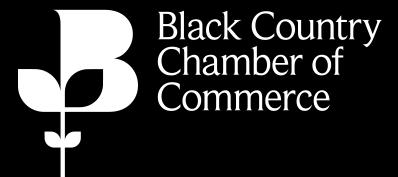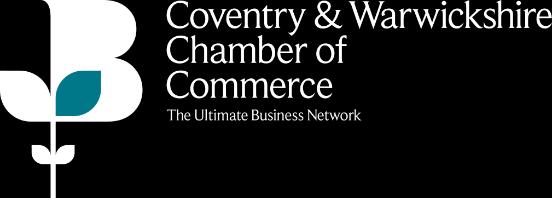



The Northern Ireland Protocol is a trading arrangement, negotiated during Brexit talks. The issue of the NI protocol has become particularly pertinent as of 31st December 2020- as this is when the UK’s transition period with the EU finished, and the UK had effectively formally left the EU.
The reason for its significance since the start of 2021 is that there have been disagreements over the protocol between different parties- ranging from the UK Government, to the Northern Ireland political parties, and the EU- which has impacted on business prospects for those British companies that trade with Northern Ireland.
What is the Northern Ireland Protocol?
- The Northern Ireland Protocol is the part of the Brexit withdrawal agreement that ensures that a hard border is avoided on the island of Ireland after the UK formally left the EU on 31 January 2020.
- The NI Protocol is part of the wider EU-UK Withdrawal Agreement (the international treaty between the UK and EU which sets out how the UK’s exit from the EU would work). It is important to note that this is different to the Trade and Cooperation Agreement, which is the agreement that governs trade and other cooperation between the UK and the EU.
- The protocol has essentially created a customs border in the Irish Sea, separating Northern Island from Great Britain. This is due to the fact that under the Protocol, Northern Ireland is formally outside the EU single market, but EU free movement of goods rules and EU Customs Union rules still apply. This means that there are no customs checks or controls between Northern Ireland and the rest of the island, and that goods from Northern Ireland may be moved without restriction to Great Britain.
What does the Protocol hope to achieve?
The protocol aims to:
• avoid a hard border between Northern Ireland and the Republic of Ireland
• make sure of the integrity of the EU’s single market for goods
• facilitate unfettered access for Northern Ireland goods to the Great Britain market, and the inclusion of Northern Ireland goods in free trade agreements between the UK and third countries.
What was the situation prior to Brexit?
Prior to the UK’s departure from the EU, it was relatively easy to transport goods across the border because both sides followed the same EU rules. However, with the implications of Brexit becoming a reality, instead of checking goods at the Irish border, the protocol agreed that any inspections and document checks would be conducted between Great Britain (England, Scotland and Wales) and Northern Ireland.
The current situation, as of January 2023, is that specific goods have to be checked when they enter Northern Ireland from Great Britain. So far, the goods are checked on arrival at ports in Northern Ireland and they can then be moved onto the Republic of Ireland once checked.
However, the UK are advocating for a new system which will be more advantageous, comprising of a green lane/red lane approach for goods exported from Great Britain to Ireland. This proposal suggests that goods destined only for Northern Ireland go into the Green Lane are not checked, whilst goods destined for the Republic of Ireland and the EU into the Red Lane where checks are carried out. This would significantly aid the customs agreements, whereby the requirement of customs declarations on all goods moving from Great Britain to Northern Ireland is serving to increase the cost of importing for businesses.
The issue behind the protocol?
Northern Ireland’s Unionist parties, particularly the DUP, did not support the Protocol on the basis that it threatened:
. The Union between Northern Ireland and Great Britain
. The 1998 Belfast (Good Friday) Agreement
- The rationale for this is that Unionist Parties argue that placing an effective border across the across the Irish Sea undermines the Northern Ireland’s place within the UK, going on to undermine the relationship between Northern Ireland and Great Britain. This centres around the fact that the land border is a sensitive issue because of Northern Ireland's troubled political history. The practical implications is that Northern Ireland's largest unionist party, the DUP, is refusing to take part in Northern Ireland's powersharing government unless its concerns are resolved.
- One of the most practical teething problems that firms are experiencing is that companies from both Great Britain and Northern Ireland have complained about the quantity of additional paperwork and checks required particularly on movements of animal origin products, small customs packets, and medicinal products from Great Britain to Northern Ireland.
- All goods entering Northern Ireland must comply with EU law applicable under the protocol, including sanitary and phytosanitary (SPS) rules that apply to animal and plant products. Products of animal origin must be accompanied by specialist paperwork, and subject to regular physical inspections. Supermarkets and their representatives have raised concern that the application of EU rules will increase costs to businesses, reducing choice and availability for NI consumers and potentially making some supply chains unviable.
- In relation to manufactured goods, all goods entering Northern Ireland must comply with EU law applicable under the protocol. Products may need to undergo compliance checks, although these usually take place away from the border or through market surveillance. The commercial reality of this is that businesses wanting to produce goods for the whole of the UK may need comply with both British and EU rules. This could lead to some businesses no longer serving the Northern Ireland market.
- A sector that faces implications is health care and medicines as Northern Ireland is highly dependent on medicines produced in Great Britain. The
issue here is that Northern Ireland must follow EU rules on medicines, including requirements on licensing, quality control and measures to tackle counterfeit products. This means that manufacturers serving both the GB and NI markets will have to comply with two different regulatory regimes, adding costs and complexity to production and distribution. This may lead some firms to stop supplying the NI market. The NI Department of Health has already been notified that firms plan to withdraw 910 medicines. Businesses that continue to serve the market may increase their prices, straining NI health budgets.
Findings from a survey conducted by Manufacturing NI throughout 2021 showed the impact that the Irish Sea border had on businesses in the sector (given the strong manufacturing industry that makes up a significant proportion of the local economy the survey feedback can be a reflective sample size impact for businesses in our region).
- One in four companies (23.9%), continue to struggle with the new requirements in the Irish Sea.
- To add to this, 17% of firms have indicated that they are “currently struggling, but likely to ease”, effectively showing that almost 41% of companies have been struggling with the process at the Irish Sea Border.
Research from the British Chamber of Commerce (accurate as of 21st Dec 2022)1 highlights that despite the Trade and Co-operation Agreement which was agreed on the 24th December 2020 and designed to allow tariff-free trade with the EU, a high proportion of businesses say that they are still having major problems trying to use the deal to trade with Europe. Significant headline figures show that:
- More than three quarters (77%) of firms, for which the Brexit deal is applicable, say it is not helping them increase sales or grow their business.
- More than three quarters (77%) of firms, for which the Brexit deal is applicable, say it is not helping them increase sales or grow their business.
- Almost half (45%) face difficulties adapting to the new rules for trading services, and a similar number (44%) report difficulties obtaining visas for staff.
- Four in five (80%) firms had seen the cost of importing increase since January.
- More than half (53%) had seen their sales margins decrease.
- 70% of manufacturers had experienced shortages of goods and services
1 This data is collected from a survey of more than 1168 businesses, 92% of this make-up being SMEs.
What has been the impact on business?The Bill is designed to give broad powers to Ministers to amend, retain or revoke (with little to no Parliamentary oversight) any of the thousands of pieces of retained EU law that exist on the UK statute book – laws which make up a regulatory framework that provides protections across a wide range of areas. The Bill was first introduced on the 22nd September 2022 by the UK Government and looks to repeal or replace an around 3800 articles of Retained EU Law.
The bill will propose that almost all of the Retained EU Law, excluding those pieces of legislation that could be preserved at the discretion of Ministers, will cease to exist in the UK after the 31st December 2023. It is important to note that contained within the bill is an extension mechanism for certain pieces of law until 23rd June 2026 and it is suspected this will be relied upon to give the UK the extra time it may need to make such vast changes to its legislation.
The implications of the bill is the level of uncertainty that it could create; the extent of this uncertainty can be seen by the fact that there is an estimated 3000 to 4000 pieces of legislation to be considered in the bill, including legislation on matters such as workers’ rights. Another implication is that there could be the case of wholesale deregulation without stakeholder consultation. This is as a result of Ministers being given unprecedented amounts of power to effectively choose which pieces of legislation should continue to apply
The Chambers of Commerce are working hard to inform and update local firms on the latest Brexit-related developments. Alongside briefing papers and social media videos, the three Chambers are also hosting a range of Brexit events over the next six months.


If you want to find out more about the trading relationship with Northern Ireland then please contact our counterparts at the Northern Ireland Chamber of Commerce.
Access support and information about our Brexit activity and International services:
Greater Birmingham Black Country Coventry and Warwickshire
For more information, contact: Cameron Uppal Policy and Public Affairs Advisor Greater Birmingham Chambers of Commerce
c.uppal@birmingham-chamber.com
 How can the Chambers of Commerce help?
The implications of the Retained EU Law (Revocation and Reform) Bill
How can the Chambers of Commerce help?
The implications of the Retained EU Law (Revocation and Reform) Bill
